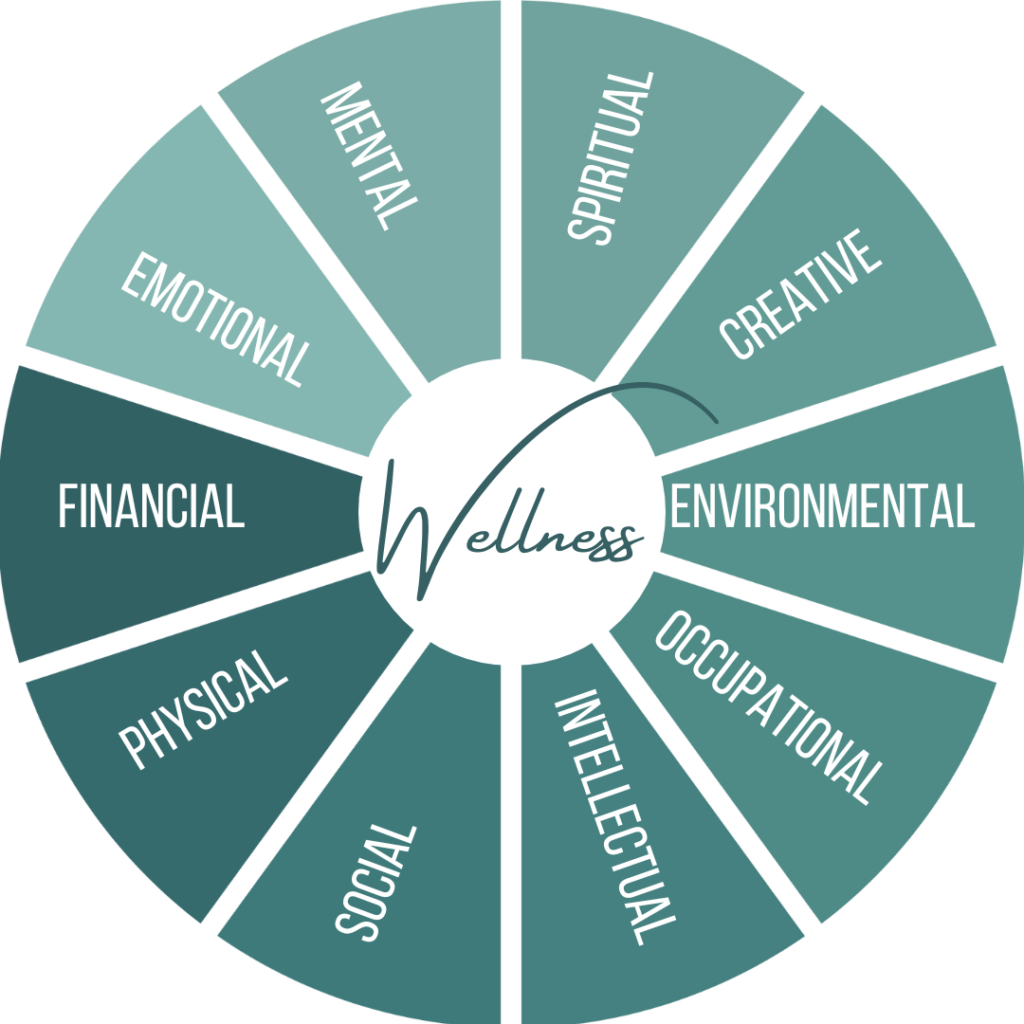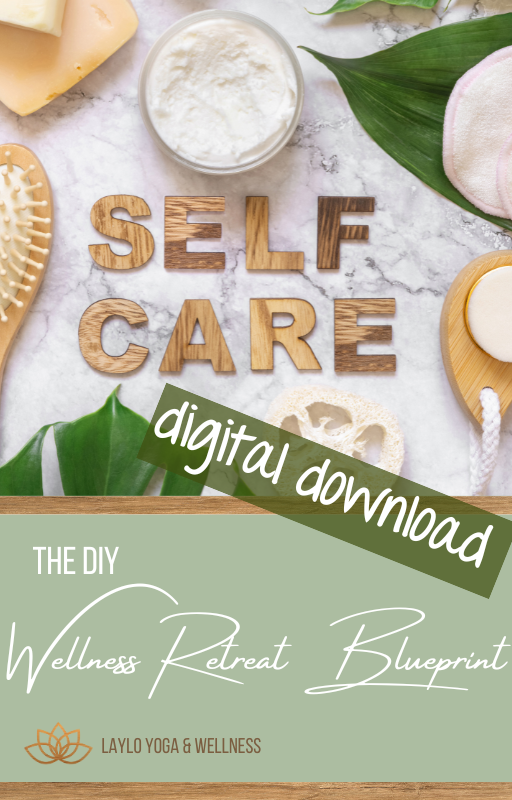What Does Wellness Actually Mean?

Wellness or well-being can mean many different things to many different people.
To some, it’s about hitting the gym every day. To others, it’s ensuring a balanced diet or carving out time for family and friends.
And for some, it might be as simple as having a good night’s sleep or enjoying a weekend hiking trip.
But what does it really mean to be well? With so many opinions and definitions, it can be a daunting task to figure out how to prioritize our well-being. While some definitions can overlap, it’s essential to understand that each facet of wellness plays a crucial role in our overall health.
To give you a clearer picture, let’s explore different interpretations of wellness and then introduce our holistic approach that might just resonate with you.
Diverse Perspectives on Wellness
1. Fitness Fans
Physical health enthusiasts view wellness primarily through the lens of bodily health. This perspective emphasizes regular exercise, proper nutrition, and sufficient sleep. For these individuals, being well means staying fit and energetic, reducing the risk of disease, and maintaining an ideal body weight.
I have to admit that for years, this is what wellness meant to me personally. Kind of hard not to fall into that thinking with 30 years in the fitness industry behind you!
Clearly, the benefits are many. Regular exercise and a healthy diet can increase energy levels, improve mood, and enhance cognitive function, allowing you to be more productive and focused in your daily life. It helps stave off disease and allows you to do more of the things you love to do.
Obviously, tons of benefits associated with taking care of our physical health.
But if that is our sole focus and we neglect other areas such as mental and emotional health, we can end up feeling burned out, anxious, or even depressed.
2. Mental Health Advocates
For some, wellness is defined by mental and emotional well-being. These individuals prioritize managing stress, practicing mindfulness, and maintaining a positive outlook on life. They understand the importance of mental health in achieving overall well-being.
By prioritizing mental health, you can manage stress more effectively, improve your relationships, and approach your work and personal life with a clear and positive mindset. This can lead to being better at establishing boundaries, saying no when needed, and creating a better work life balance.
However, overemphasizing mental wellness while neglecting physical health can lead to health issues like obesity, heart disease, or chronic fatigue.
3. Spiritual Seekers
Spiritual seekers define wellness as a connection to something greater than themselves. This could be through religion, meditation, or a sense of purpose and meaning in life. They believe that wellness is about inner peace and spiritual growth.
Engaging in spiritual practices can provide a sense of calm, enhance your ability to cope with stress, and foster a deeper connection with yourself and others.
Unfortunately, focusing solely on spiritual well-being without considering other aspects can lead to a lack of balance, making it difficult to cope with practical, day-to-day challenges.
A Holistic Approach to Wellness
True wellness is a comprehensive approach that encompasses all facets of life.
We define wellness using the 10 basic pillars: emotional, mental, financial, physical, social, spiritual, creative, environmental, occupational, and intellectual.
Each of these pillars is unique, yet interconnected, contributing to our overall well-being.

1. Emotional Wellness
Emotional wellness involves understanding and managing your emotions. It’s about being able to express your feelings appropriately and cope with life’s challenges.
By nurturing your emotional health, you can handle stress more effectively, improve your relationships, and enjoy a more fulfilling and balanced life.
2. Mental Wellness
Mental wellness is about maintaining a healthy mindset. This includes self-awareness, resilience, and the ability to cope with stress and anxiety.
Prioritizing mental health can lead to better decision-making, improved problem-solving skills, and a more positive outlook on life.
3. Financial Wellness
Financial wellness refers to managing your finances in a way that reduces stress and anxiety. It involves planning for the future, living within your means, and having a safety net for unexpected expenses.
Achieving financial wellness can provide peace of mind, reduce stress, and allow you to focus on other areas of your life without the constant worry about money.
4. Physical Wellness
Physical wellness is about taking care of your body through regular exercise, a balanced diet, and sufficient sleep.
By maintaining physical health, you can increase your energy levels, reduce the risk of illness, and improve your overall quality of life.
5. Social Wellness
Social wellness involves building and maintaining healthy relationships with others. It’s about connecting with people, fostering a sense of belonging, and creating a support network.
Strong social connections can improve your mood, reduce stress, and provide a sense of purpose and belonging.
6. Spiritual Wellness
Spiritual wellness is about finding meaning and purpose in life. It’s about connecting with something greater than yourself and developing a set of values and beliefs.
Spiritual wellness can provide a sense of inner peace, improve your ability to cope with stress, and enhance your overall well-being.
7. Creative Wellness
Creative wellness involves expressing yourself through creative activities. It’s about using your imagination and creativity to enhance your life.
Engaging in creative activities can reduce stress, improve mood, and provide a sense of accomplishment and satisfaction.
8. Environmental Wellness
Environmental wellness is about living in harmony with the earth and taking care of your surroundings. It involves making sustainable choices and reducing your impact on the environment.
By practicing environmental well-being, you can improve your physical and mental health, reduce stress, and contribute to a healthier planet.
9. Occupational Wellness
Occupational well-being is about finding fulfillment and satisfaction in your work. It’s about balancing your work and personal life and finding a career that aligns with your values and goals.
Achieving occupational wellness can lead to increased job satisfaction, improved work-life balance, and greater overall well-being.
10. Intellectual Wellness
Intellectual wellness involves engaging in activities that stimulate your mind and enhance your knowledge and skills. It’s about lifelong learning and personal growth.
By prioritizing intellectual well-being, you can improve your problem-solving skills, increase your creativity, and enhance your overall quality of life.
The Importance of Being Balanced
While each of these areas of wellness is important, it’s crucial to remember that they are interconnected. Focusing too much on one area at the expense of others can lead to imbalances and negative consequences.
For example, neglecting physical health while focusing on financial wellness might lead to stress, fatigue, and illness. On the other hand, prioritizing physical health without considering mental or emotional well-being might lead to burnout and decreased productivity.
Benefits of a Holistic Approach
Taking a holistic approach to well-being can provide numerous benefits. By addressing all areas of your well-being, you can achieve a more balanced and fulfilling life.
You’ll be better equipped to handle stress, improve your relationships, and find satisfaction in your work and personal life. Plus, taking care of your overall well-being can contribute to a longer, healthier life.
Start Your Journey to Wellness Today
Ready to take the first step towards a more balanced and fulfilling life?
Start by assessing your current well-being in each of these areas. Identify areas where you might need to focus more attention and take small steps towards improvement.
Whether it’s setting aside time for self-care, seeking out new learning opportunities, or building stronger relationships, every step you take towards wellness can have a positive impact on your life.
Well-being is a journey, not a destination. It’s about making conscious choices to live a healthier, more fulfilling life. So, embrace the journey, take care of yourself, and enjoy the benefits of a balanced and holistic approach to your well-being.

Isn’t it time to leave burnout behind and lead a life that makes YOU a priority? Consider rebooting your mind and body with one of our wellness retreats! Designed specifically to immerse you in an environment that takes you out of your daily grind, you will be able to focus on crafting your life in a way that honors your family and career while carving out time to pursue interests that excite you so you can feel balanced, fulfilled, and calm. Get on the info list so you know what is happening, when, and where!
P.S. Let’s get to know each other better!! Follow us on Instagram, Facebook, YouTube, LinkedIn, and Pinterest, and join the LAYLO Shala to get the latest news and insider goodies 😍








